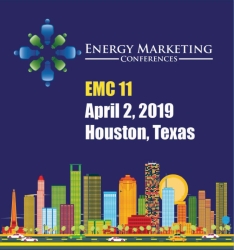|
|
|
|
|
PURA Says Components Of Default Service Costs Outside Scope Of Proceeding Reviewing Whether To Place All Hardship Customers On Default Service
The following story is brought free of charge to readers by EC Infosystems, the exclusive EDI provider of EnergyChoiceMatters.com
The Connecticut PURA has ruled that examining the components that constitute the electricity Standard Service rate is irrelevant to a proceeding reviewing whether all hardship customers should be returned to default service.
As first reported by EnergyChoiceMatters.com, the Connecticut PURA opened a Docket 18-06-02 for a review of the feasibility, costs, and benefits of placing certain customers on standard service pursuant to Conn. Gen. Stat. § 16-245o(m). The General Statutes of Connecticut §16-245o(m) permits the Public Utilities Regulatory Authority (Authority) to initiate a docket to review the feasibility, costs and benefits of placing on standard service all customers of all electric suppliers (1) who are hardship cases for purpose of subdivision (3) of subsection (b) of section 16-262c, (2) having moneys due and owing deducted from such customer bills by the electric distribution company pursuant to subdivision (4) of subsection (b) of section 16-262c, (3) receiving other financial assistance from an electric distribution company, or (4) who are otherwise protected by law from shutoff of electricity services. The statute permits the Authority in a final decision to order all such customers to be placed on standard service
The Retail Energy Supply Association had issued interrogatories to the electric distribution companies seeking information concerning the components of standard service, and costs thereof. PURA granted the EDCs' objections to the component-related interrogatories, stating that the issue is outside the scope of the proceeding
RESA's interrogatories RESA-EDC 1 and 2 seek to identify in which component of rates twenty-six separate costs are collected. RESA-EDC 3, 4, and 5 are follow-up questions related to the material requested in RESA-EDC 1 and 2. RESA-EDC 6 and 7 request information regarding the over or under collection of costs.
"As explained below, the Authority finds that the material and information requested in RESA-EDC 1 through 7 is not relevant to the current docket," PURA said
"This proceeding is limited to the determination required by Conn. Gen. Stat. § 16-245o(m) – the feasibility, costs, and benefits of placing customers described in the statute on standard service. RESA argues that, 'If standard service contains more, or fewer, or different elements, than competitive supply products, a comparison of Standard Service and those competitive supply products must account for the differences.' RESA’s argument is misplaced in the context of the current docket. If the rate charged by a supplier contains different components than the standard service rate, then the forum in which to address those differences would be a rate case or the docket that created any potential differences. The purpose of the current docket is to look at the costs as they currently exist. It is beyond the scope of this docket to alter the current rate structure. Under the current rate structure, any differences between a supplier’s charge and standard service rate are reflected solely in the generation service charge, or the supply portion of a customer’s bill. Examining the components that make up the generation rate is not relevant to the issues before the Authority in this proceeding because it does not change the end result – a customer receiving supply from a supplier must pay the total generation rate, and a customer receiving supply from standard service must pay the total generation rate. Granular knowledge related to the various components of those generation amounts, regardless of any variation in components between the two, does not alter the total amount that a customer is required to pay. As a result, the Authority sustains the Companies’ objections to RESA-EDC 1 through 7," PURA said (emphasis by PURA)
ADVERTISEMENT Copyright 2010-16 Energy Choice Matters. If you wish to share this story, please
email or post the website link; unauthorized copying, retransmission, or republication
prohibited.
March 11, 2019
Email This Story
Copyright 2010-19 EnergyChoiceMatters.com
Reporting by Paul Ring • ring@energychoicematters.com
NEW Jobs on RetailEnergyJobs.com:
• NEW! -- Account Manager, Energy Choice
• NEW! -- Business Development Manager
• NEW! -- Chief Operating Officer -- Retail Supplier
• NEW! -- Retail Energy Channel Manager -- Retail Supplier
• Energy Sales Broker
|
|
|
|









